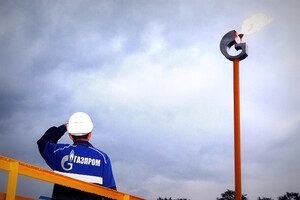The EU has developed a number of measures to reduce dependence on resources from Russia.

The European Union plans to intensify cooperation with African countries to reduce its dependence on Russian gas by two-thirds by the end of 2022. This was reported by Bloomberg with reference to the draft EU external energy strategy.
It is noted that the document should be adopted this month as part of the package of the bloc's plan to reduce energy dependence on Moscow.
Countries Africa, particularly in the western part of the continent, such as Nigeria, Senegal and Angola, has significant potential for liquefied natural gas (LNG), according to the draft EU strategy.
“The EU wants to abandon its largest supplier after President Vladimir Putin invaded Ukraine. The draft energy strategy also aims to prepare the region for imports of 10 million tonnes of renewable hydrogen by 2030 to help replace gas from Russia under the Green Agreement. The EU on the abandonment of fossil fuels and achieving climate neutrality by the middle of the century, “- writes Bloomberg.
In addition, the plan envisages an increase in LNG imports by 50 billion cubic meters in 2022. As well as an increase in non-Russian pipeline gas supplies by 10 billion cubic meters, which will require establishing relationships with traditional suppliers on a new basis and expanding trade with new suppliers.
Also among the steps in the draft strategy to replace Russian imports: <
- full implementation of the agreement with the United States on the additional supply of 15 billion cubic meters of LNG in 2022 and about 50 billion cubic meters annually by 2030;
- signing a tripartite memorandum of understanding with Egypt and Israel to increase LNG supplies by summer 2022;
- doubling the capacity of the Southern Gas Corridor, which supplies gas from Azerbaijan to Europe, to 20 billion cubic meters per year;
- Consider importing gas from Canada;
- redirecting LNG consignments destined for Asia to Europe.
>
Read also: War with Russia: n ' important conclusions after Rammstein
Poland is preparing proposals for the introduction of a tax on Russian energy in the EU. This will speed up the process of reducing dependence on Russia.
Between Poland and Lithuania have launched the GIPL gas pipeline, which is the interconnector of the two countries and has in fact provided the opportunity for further gas supplies between Eastern Europe and other Baltic countries. Serhiy Makogon, General Director of the GTS Operator of Ukraine, clarified that the expansion of fuel supply opportunities will also apply to Ukraine.




